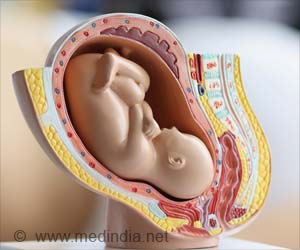Poor sleep is a risk factor for Alzheimer’s disease, a new NIH study finds. Just one sleepless night can lead to an immediate increase in beta-amyloid, a protein in the brain connected with Alzheimer's disease.

‘In Alzheimer's disease beta-amyloid proteins clump together to form amyloid plaques. Poor sleep for just one night can lead to an immediate increase in beta-amyloid raising the risk for Alzheimer’s disease.’





"This research provides new insight about the potentially harmful effects of a lack of sleep on the brain and has implications for better characterizing the pathology of Alzheimer's disease," said George F. Koob, Ph.D., director of the National Institute on Alcohol Abuse and Alcoholism (NIAAA), part of the National Institutes of Health, which funded the study. Beta-amyloid is a metabolic waste product present in the fluid between brain cells. In Alzheimer's disease, beta-amyloid clumps together to form amyloid plaques, negatively impacting communication between neurons.
Led by Drs. Ehsan Shokri-Kojori and Nora D. Volkow of the NIAAA Laboratory of Neuroimaging, the study is now online in the Proceedings of the National Academy of Sciences. Dr. Volkow is also the director of the National Institute on Drug Abuse at NIH.
To understand the possible link between beta-amyloid accumulation and sleep, the researchers used positron emission tomography (PET) to scan the brains of 20 healthy subjects, ranging in age from 22 to 72, after a night of rested sleep and after sleep deprivation (being awake for about 31 hours). They found beta-amyloid increases of about 5 percent after losing a night of sleep in brain regions including the thalamus and hippocampus, regions especially vulnerable to damage in the early stages of Alzheimer's disease.
In Alzheimer's disease, beta-amyloid is estimated to increase about 43 percent in affected individuals relative to healthy older adults. It is unknown whether the increase in beta-amyloid in the study participants would subside after a night of rest.
Advertisement
"Even though our sample was small, this study demonstrated the negative effect of sleep deprivation on beta-amyloid burden in the human brain. Future studies are needed to assess the generalizability to a larger and more diverse population," said Dr. Shokri-Kojori.
Advertisement
Source-Eurekalert












